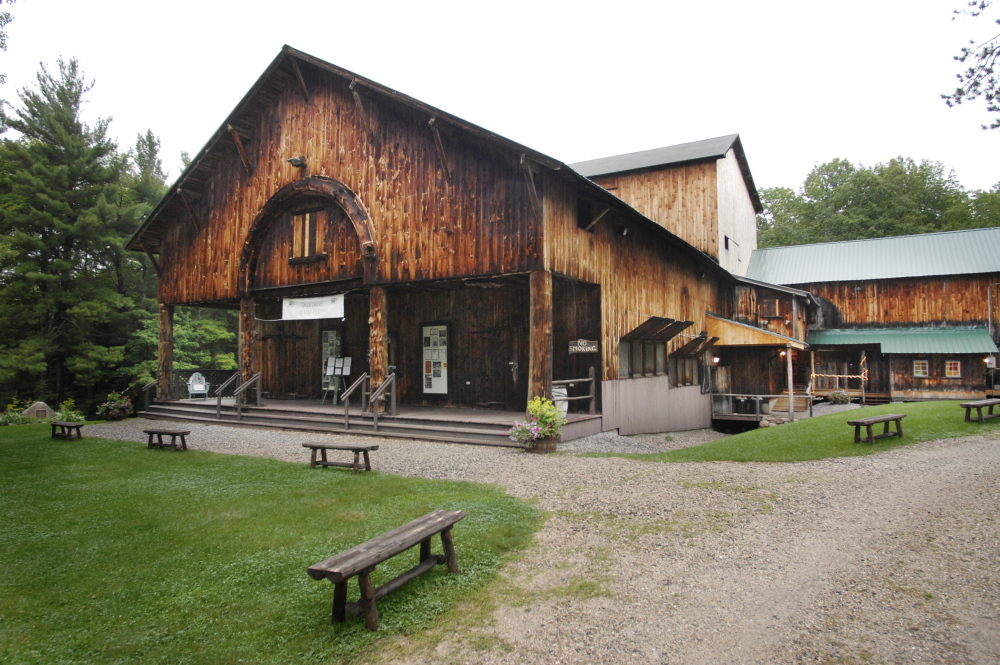When I lived in Pennsylvania and went fox-hunting, I imagined how glorious it would be to have Dennis Brain, arguably the best horn player who ever lived, blowing the hunting calls instead of the huntsman. It would have been like being inside a Brahms symphony.
Romantic gilding of the lily, but thinking about the Maine music festival season coming soon, made me see an analogy. People come to Maine for its scenic beauty, the charm of its villages, peace and quiet and the rest of its attractions. Adding classical music would create a similarly ideal combination, without having to teach a horn player to ride cross-country. Imagine a good flautist harmonizing with the loons on your favorite lake. (It’s happened.)
The combination already exists, from late June to mid-August. Not played up much in brochures, classical music remains an important driver of cultural tourism in this state.
It would be possible to attend a different classical concert almost every day in July without working up much of a sweat, in venues ranging from historic buildings to summer theaters to major concert halls. (During its off-season, Portland’s Merrill Auditorium hosts regular concerts on the Kotzschmar Organ that attract pipe-organ aficionados from all over.)
A concert each day seems like overkill, but audiences keep increasing, and some of the events, like the Salt Bay Chamber Fest in Damariscotta (Aug. 4-14) play to capacity audiences no matter whose music they perform, from (Arcangelo) Corelli to (George) Crumb.
The elephant in the room is, of course, the Bowdoin International Music Festival (June 27-Aug. 8) with more than 100 concerts by internationally famous musicians and their students. Mondays offer sonatas, Wednesdays casual concerts, and Fridays full-dress orchestral performances. In between are recitals by students who, given the advances in musical training over the centuries, are the equals of Liszt or Chopin, in technique at least.
One could fill in the spaces with the summer season of the DaPonte String Quartet, which has begun to play in smaller, widely separated venues, bringing world-class chamber music to the more remote areas of the state. Speaking of ideal settings, they also play at the Coastal Maine Botanical Gardens.
In the Lakes Region is the Sebago-Long Lake Music Festival (July 14-Aug. 11). Now in its 43rd season. Backstage at the Deertrees Theatre in Harrison opens onto the Maine woods, the theater itself has some of the most remarkable acoustics in New England, and the chamber music one would expect to hear at Lincoln Center.
In a more urban setting is the Portland Chamber Music Festival (Aug. 13-22). Now in its 22nd year, the festival has a new venue in the elegant (and air-conditioned) Hannaford Hall in Portland, and features an ingratiating mix of well-known classics with contemporary and commissioned works. In Portland, one can combine good music with some of the world’s best food, before or after a concert.
As far Down East as one can get in the U.S., SummerKeys in Lubec offers a concert or recital every week in its Congregational Church, from June 17 to Aug. 26, accompanying a program of workshops in the arts.
On the way one might stop at the Bar Harbor Music Festival, June 28 to July 26, or the great-grandfather of Maine music festivals at Blue Hill’s Kneisel Hall, where the chamber music school offers weekly concerts in July and August. The school was begun in 1902 and re-established in 1953.
One thing Maine does not have is an opportunity to combine music and its Atlantic shore. Probably the ocean offers too much competition, or maybe the real estate is too valuable for an amphitheater. It’s too bad. “So might I, while standing on this pleasant lea, have glimpses that would make me less forlorn; have sight of Proteus rising from the sea, or hear old Triton blow his wreathed horn” – Wordsworth, “The World Is Too Much With Us.”
At the very least, one could build a “stone wave organ,” which plays when ocean waves force air into its pressure chambers, the height of the wave governing the pitch of sound. There’s one in Croatia and another in San Francisco. Why not Casco Bay?
Christopher Hyde is a writer and musician who lives in Pownal. He can be reached at:
classbeat@netscape.net
Send questions/comments to the editors.



Success. Please wait for the page to reload. If the page does not reload within 5 seconds, please refresh the page.
Enter your email and password to access comments.
Hi, to comment on stories you must . This profile is in addition to your subscription and website login.
Already have a commenting profile? .
Invalid username/password.
Please check your email to confirm and complete your registration.
Only subscribers are eligible to post comments. Please subscribe or login first for digital access. Here’s why.
Use the form below to reset your password. When you've submitted your account email, we will send an email with a reset code.